Sever’s Disease (Calcaneal Apophysitis) in Children
posted: Aug. 05, 2019.
Is Your Child Frequently Mentioning Heel Pain?
Calcaneal Apophysitis (Sever’s Disease)
Calcaneal Apophysitis, or Sever’s Disease, is a painful inflammation of the heel’s growth plate (physis). This condition typically affects children between the ages of 8 and 14 years old. Calcaneal Apophysitis occurs more commonly in boys than girls. Heel bones, the calcaneus, will not be fully developed until around the age of 14, therefore repetitive stress on the new bone forming at the growth plate can cause inflammation, and in turn, pain.
This condition is also called Sever’s disease, which is misleading – it is not an actual disease per se. The condition is named after James Warren Sever (1878–1964). Dr. Sever was an American orthopedic doctor who described this condition in 1912. Calcaneal Apophysitis is the most common cause of heel pain in children.
Heel pain in children differs from the most common type of heel pain experienced by adults. Heel pain in adults usually subsides after a period of walking, but pediatric heel pain generally doesn’t improve in this manner. In fact, walking and activity typically makes the pain worse.
Causes
The primary cause of Calcaneal Apophysitis is overuse and stress on that heel bone, typically through participation in sports or other physical activity. Repeated running and pounding on hard surfaces can exasperate muscle strain and inflammed tissue. Children and adolescents tend to be quite physically active, and this activity contributes to the pain!
A few other potential causes of Calcaneal Apophysitis could include obesity, a tight Achilles tendon, and biomechanical problems such as flatfoot or a high-arched foot.
Symptoms
Symptoms to look out for:
- Pain in the back or bottom of the heel
- Squeezing the sides of the heel causes pain
- Walking on toes
- Limping
- Difficulty running, jumping, or participating in usual activities or sports
Diagnosis
A foot and ankle specialist will diagnose the cause of your child’s heel pain through obtaining a thorough medical history and description of recent activities. The specialist will examine your child’s foot and leg. They may also use X-rays and advanced imaging to evaluate the condition.
Treatment
Your specialist may make the following recommendations to treat the pain:
- Rest: Try to reduce activities that cause pain.
- Support the heel: Temporary shoe inserts or custom orthotic devices may provide support for the heel.
- Nonsteroidal anti-inflammatory drugs: NSAIDs, such as ibuprofen, help reduce the pain and inflammation.
- Ice: Ice the area to reduce inflammation.
- Stretching: Physical therapy modalities can help reduce the pull on the Achilles tendon and help promote healing of the inflamed issue.
- Casting: A cast may be used in some cases of severe pediatric heel pain to keep the foot and ankle totally immobile while it heals.
Tips to prevent Calcaneal Apophysitis
Reducing the chances of a child developing heel pain include:
- Avoiding obesity
- Choosing well-constructed, supportive shoes that are appropriate for the child’s activity
- Avoiding or limiting wearing of cleated athletic shoes
- Choosing shoes with an elevated heel.
Sever’s disease is self-recovering; the condition should go away on it’s own when the foot is used less, or the bone is finished growing. This condition should not create any long-term disability. While symptoms can resolve quickly, it is important to note that often heel pain in children returns after it has been treated because the heel bone is still growing. Recurrence of heel pain may be a sign of Calcaneal Apophysitis, or it may indicate a different problem.
If your child is experiencing heel pain, or has a repeat bout of heel pain, be sure to make an appointment with us to check it out!
